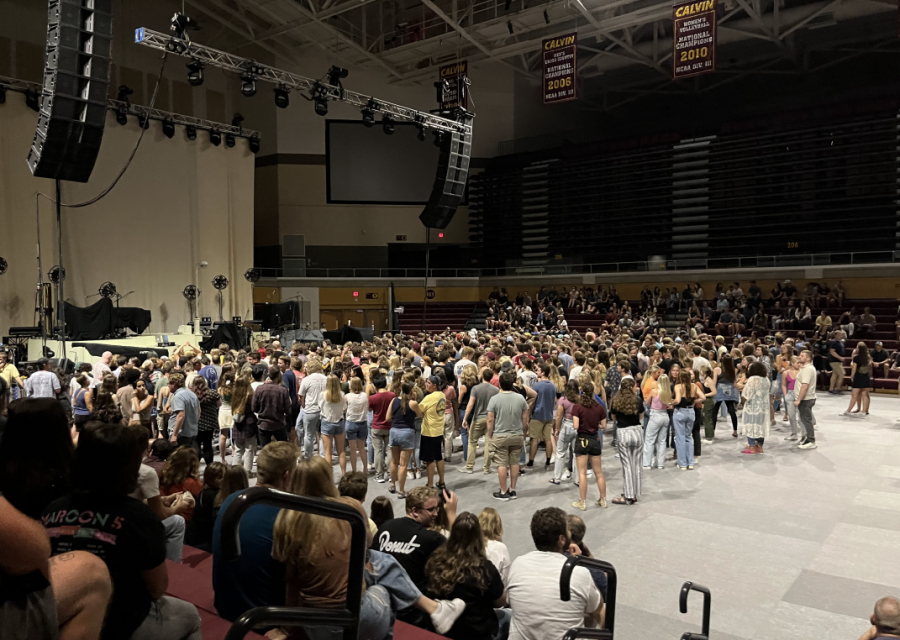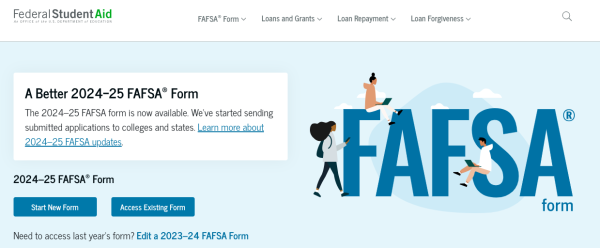Post-pandemic, students are less interested in new events, more interested in casual hangouts
While large campus events have struggled to attract students post pandemic, more unstructured dorm sponsored events have had more success.
Some of the more obvious effects of the COVID-19 pandemic are fading, but there are long-lasting effects that Calvin’s campus, as well as campuses across the country, are still experiencing.
Lingering changes are particularly noticeable regarding student engagement in on-campus activities. “Overall, since starting here in January 2020, our attendance across the board has been lower. And that’s not just with our office: It’s the same in offices across campus,” Jack Droppers, director of the Student Activities Office (SAO), told Chimes.
Low attendance at events post-COVID isn’t a phenomenon unique to Calvin. Other colleges and universities, as well as major concerts and festivals, have faced it, too.
The SAO puts on five annual events (Fall Formal, Post Family Farms, Grand Prix Bed Races, the Dodgeball Tournament and the Spring Dance) as well as weekend programming (open gym nights, movies and concerts). “Some of the traditional events that don’t change and are more predictable sell well,” Droppers said. “Things that are new can be a lot more daunting and those tend to be the ones with lower attendance.”
The post-COVID dip in attendance at Calvin has not been unilateral and varies by type of event. “Some events have been equal to where they were four years ago, and some events have been significantly lower than what they were,” Droppers said. For example, pre-COVID movie numbers were closer to 600 people. “It used to be if we had under 200 people come to a movie it was a bust, but now if we get over 200 people to a movie, it’s gone pretty well,” Droppers told Chimes. SAO also relies mainly on ticket sales to outside people rather than to students to make up their box office profits.
Dorm events teams have found that, post-COVID, students are more interested in casual and unstructured social events.
“Our attendance has improved this year for BV [(Beets-Veenstra)] as a whole,’” Chloe Hoekstra, a sophomore on BV’s residence hall executive team, told Chimes, an outcome resulting largely because of the RHET team’s flexibility.
“We meet on Mondays and we feel the vibe of the dorm,” Hoekstra said. “We can judge — are people busy? Do we want a more chill event? Or are schedules free, and we can commit to an actual event that’s a bit more of a time commitment?”
Other dorms are also finding that attendance is, to some extent, dependent on matching the type of event students are willing to take part in. “It kind of depends on the event in question, but people are still pretty engaged,” Daniel MacIntyre, sophomore and Bolt-Heyns-Timmer’s RHET president, told Chimes.
“People seem to like a more unstructured hangout time,” MacIntyre told Chimes. “Especially as we come into the second semester, people find what they are interested in and are less likely to try new things.”
“They prefer to organically create fun things rather than having something formally planned.” Hoekstra said.
This shifting tone surrounding campus events, according to Droppers, is caused by people’s post-pandemic propensity to forgo already planned activities. “Since COVID people are more willing to cancel last minute, which pre-COVID wasn’t really something people did without social consequences,” Droppers told Chimes.
The SAO is now experiencing the phenomenon of people purchasing tickets to something and then never showing up for the actual event. “It’s a new era of ‘Do I attend the thing or not?’” Droppers said, “and it’s not unique to Calvin, but it seems to have hit Calvin particularly hard.”
To Droppers, getting engaged with campus events is an essential part of the Calvin experience which some students are now missing out on. While Calvin is known for its academics, Droppers encourages students to not forget about the social and exploration parts of a full college experience. “It is as important as what happens in the classroom. It may not feel as serious, and your degree doesn’t depend on it, but it is a part of that formational process.”








